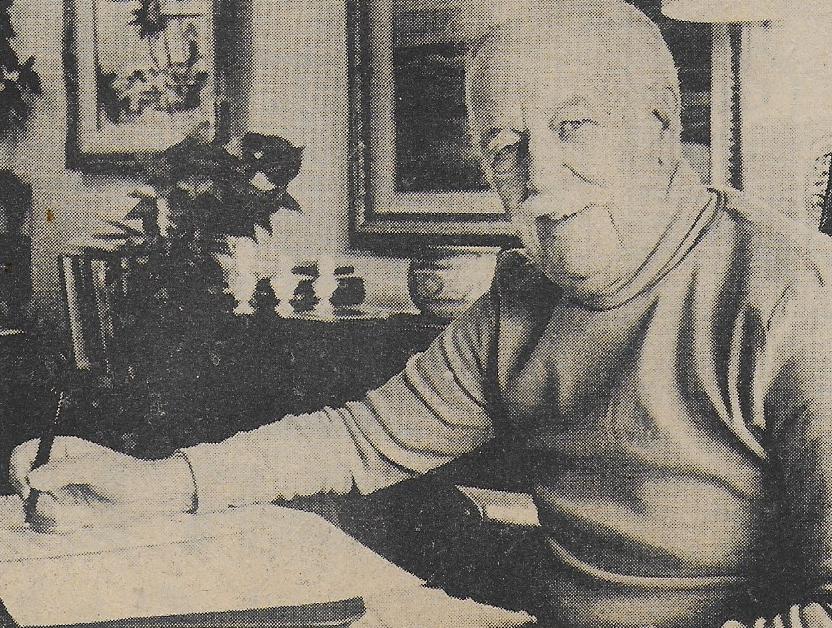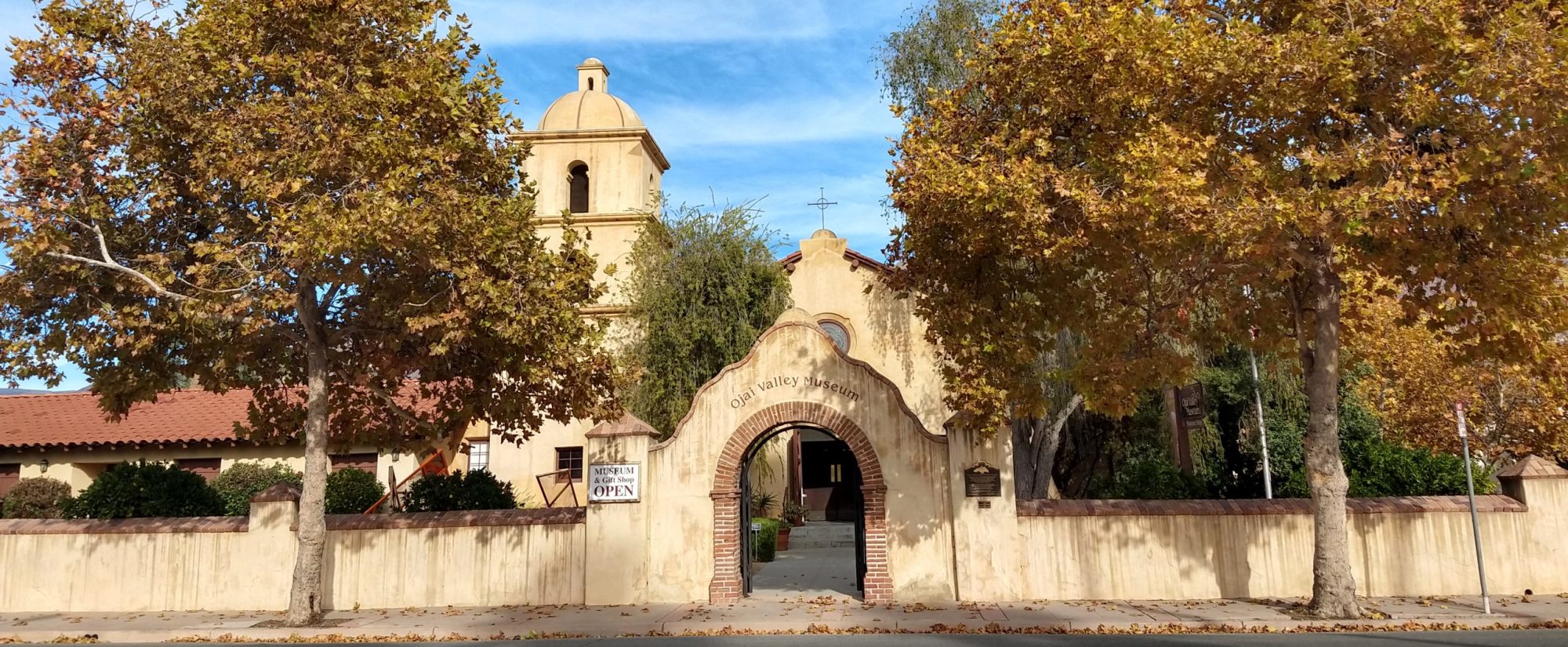The following article first appeared in the Wednesday, February 15, 1978 edition of the “Ojai Valley News” on Page A-9. It is reprinted here with their permission.
Meet Milton Charles, organist of silent movies
by
Brenda Loree
“Critics consider him one of the greatest organists in America,” says Arthur Eddy of his friend Milton Charles, who is now retired in Ojai.
Charles was born in San Jose “a long time ago,” and reminisced recently about what it was like playing the organ in the silent movie days of the 20’s among other things.
Milton was taking piano lessons by the time he was seven — he was part of a musical family — and considers that his first lucky break was when well-known San Francisco teacher Benjamin Moore accepted him as an organ student at no fee.
His first paid job was at age 13, when he “got my first church” at $25 a month. He continued with his lessons, too, until he heard that they were using organists in movie theaters. At age 15 he was earning $50 a week playing San Francisco movie theaters, very big money at that time. And no longer took lessons because his teacher highly disapproved of his new job.
MILTON SAYS the musical accompaniment he provided for the silents was strictly improvisation. He never played the same thing twice, although he would occasionally keep using the same musical theme if he hit on one he liked.
He was still a teenager when he got his first “big time” break. “I got a call from Sid Grauman (of Grauman’s Chinese Theater) one night. He offered me a job at the Million Dollar Theater in L.A. at $85 a week.”
Milton took the job and began a friendship with Grauman which ended up spanning decades, many hirings, firings and hirings again, and Milton’s introduction to such Hollywood notables as Gloria Swanson and Charlie Chaplin, both of whom became big fans of his music.
Milton told of being second organist at the Million Dollar Theater, taking turns playing with the lead organist, C Sharp Minor, from 11 in the morning until midnight.
“MR. MINOR would occasionally just disappear,” smiles Milton, “and I’d be left playing straight through from 11 a.m. to 11 p.m. We always did a concert in those days before the silent movie started. They’d send out to the Owl Drugstore nearby for sandwiches and milk for me. Afterwards, I’d often get a call from Sid Grauman to come over to his house and play for a few of his friends out from New York. Gloria Swanson would sit on the bench with me a lot and sing along. She had a beautiful voice.
“Sid was an eccentric guy,” remembers Milton. Often Grauman would have all of those people wanting to break into show business come to his house to audition in the evening, with Milton accompanying. Some of them were good, says Milton, but he remembers some nights being so bad as to remind him of today’s Gong Show.
As one of only three or four professional organists in the country in the 20’s, Milton came to be in big demand, playing the Tivoli Theater in Chicago — by this time jus solo numbers — and back to the Metropolitan and then Paramount Theaters in L.A. again.
MILTON remembers when the Paramount Theater was about to go up at 6th and Hill in L.A. “They’d just started excavating, and it was just one big hole in the ground. Sid Grauman came around for me and took me to the site. ‘Okay, Milton, you stand here and yell at me when I get to the other side,’ instructed Grauman. ‘Hello, Mr. Grauman,’ I yelled. ‘Okay, kid, I just wanted to check the acoustics,’ Grauman yelled back.”
Milton was, to his knowledge, the first performer to use a microphone (carbon mike) in his act. He came up with the idea accidentally, while trying to solve an acoustics problem in a theater, and just stayed with it.
By this time Milton was touring Europe and the Eastern United States, playing the Mastbaum Theater in Philadelphia with a 200 orchestra. Milton remembers going to Paris to begin an engagement at a theater and having such a good time he never showed up at the theater.
By 1930, sound movies were in, and Milton appeared, playing and singing, in the movies for a while. He then began a long stint playing background music and lead-in music for CBS Radio in Chicago, finally rising to Music Director of CBS. But before he was named director he remembers mad days of playing for five soap operas a day.
“THERE WOULD be a sound stage for every show, and I would race — I had 20 seconds — from one studio and organ across the hall to another studio, organ, and another soap,” he said. Milton adds that he would usually get a copy of the story line an hour before going on the air, and he would score the shows as much as he could in that time. Ma Perkins, Road of Life and Amos and Andy Shows were some of the ones he did.
Missing California, he signed on with CBS Radio in L.A. as a staff musician and played the background music for both the Roy Rogers an Gene Autry radio shows, besides playing with the CBS Orchestra for many years, when he lived in Toluca Lake.
As he approached retirement age, he took on another career. He began playing at a plush new restaurant in L.A., the Kings Arms, as a sideline career, and ended up staying there almost 20 years.
“I really loved doing that, and you have to, since most of the people around you in a lounge like that are feeling their oats,” Milton smiles.
MILTON STARTED coming to the Ojai Valley Inn occasionally in the early 70’s and fell in love with the valley.
He moved to Ojai permanently some five years ago and thinks he has the best of all worlds — 1 1/2 hours from Los Angeles, 45 minutes from Santa Barbara, while living in one of the “most beautiful places in the world.”

